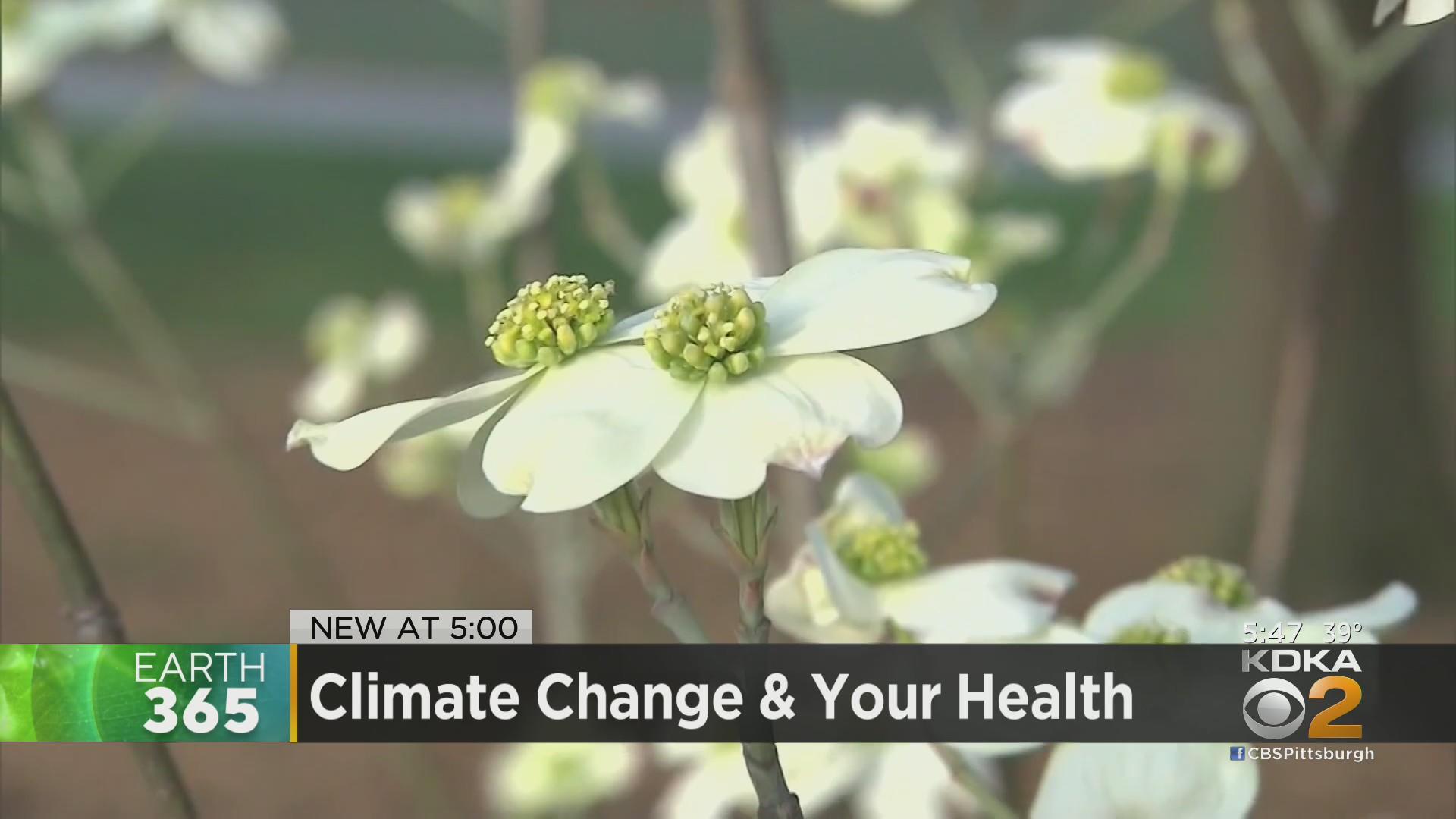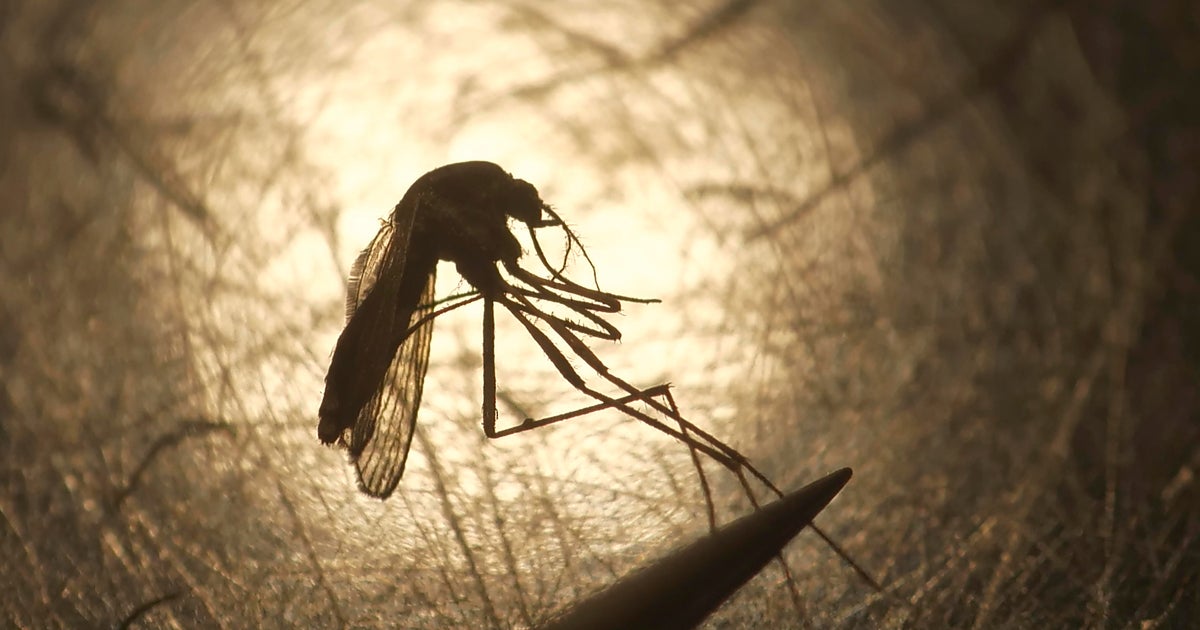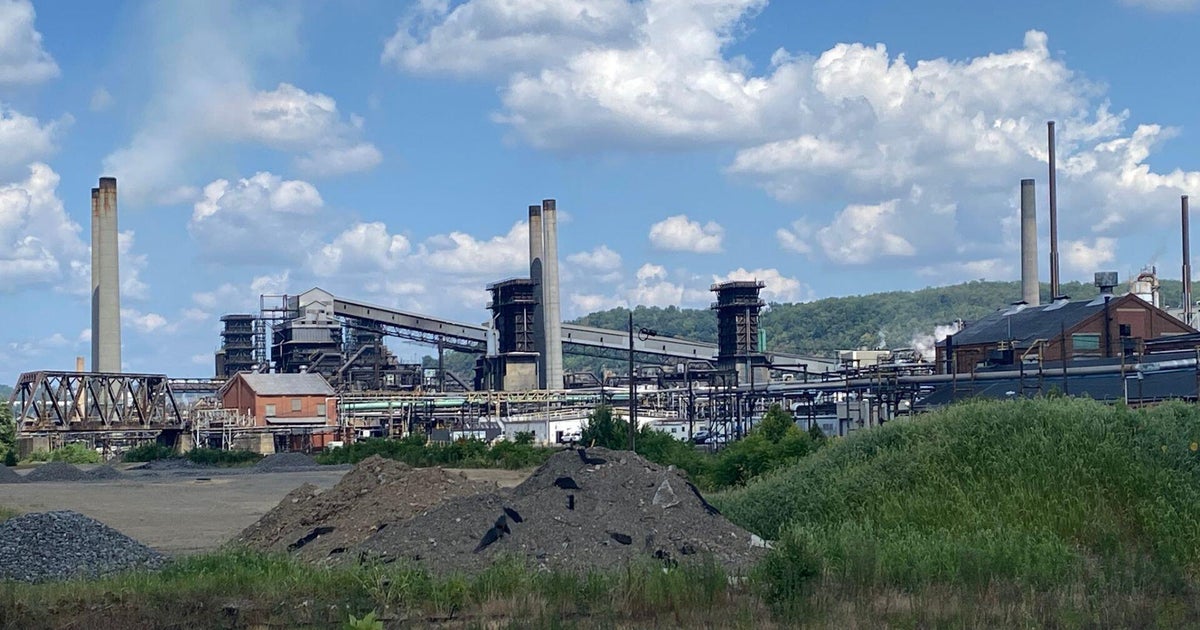Earth 365: Is climate change making allergies worse?
PITTSBURGH (KDKA) -- CBS News and KDKA-TV are committed to covering stories about the Earth and our environment all year long, but especially this week as we lead up to Earth Day on Friday.
All this week on KDKA News at 5 p.m., we're taking a look at our changing climate and the impact it's having on all of us in a series called Earth 365. In part 2 of the series, KDKA is examining what climate change is doing to our health, specifically our allergies.
Experts are predicting that pollen levels will again be extremely high this spring and summer, maybe even record-setting. And with levels that high, they say medicine may not make much of a difference.
In all, more than 50 million Americans suffer from some type of allergy. It's the sixth-leading cause of chronic illness in the U.S.
And for nearly half of them, it's seasonal allergies that cause the most misery. If you feel like your allergies are slowly getting worse with time, you're right.
According to Dr. Thomas Mertz, an allergist and immunologist with Allergy and Asthma Associates of Pittsburgh, the main cause is an extended growing season. Data shows the growing season in western Pennsylvania is longer now than it used to be.
Looking at records since they started keeping them in 1948, there's been 26 times with 190 days or more of temperatures remaining at or above 32 degrees. Six of those times have occurred over the past decade.
And Dr. Mertz says those changes are big enough to feel.
"With that longer growing period, you're going to see more exposure to pollen and a higher amount," said Dr. Mertz.
So, for example, you may have been fine with the amount of pollen that was in the air in 2010. But, in the past decade, even an increase as small as ten percent has been enough to push you and others to your breaking point, or worse.
"More recently, we've had what we call breakthrough cases with more severe symptoms where, despite medicine, they're still suffering," Dr. Mertz said.
And while pollen can be unrelenting, Dr. Mertz says there are simple solutions that may help you deal with the increasing pollen in the air. First, take frequent showers during peak times for pollen. Second, wash your clothes as soon as you come indoors. And third, turn on the air conditioner.
"If you have some way of filtering the air, you don't actually breathe a lot of pollen in. So, what you can do is keep the windows closed and run the air conditioning so that the air gets filtered in your home," Dr. Mertz said.
And keep this in mind, too. Seasonal allergy symptoms tend to be especially bad the day after a hard rain or thunderstorm. That's because mold spores, grass and pollen are disturbed and released into the air causing pollen counts to go up.
So, since we tend to see a lot more severe weather during the spring and summer, it's those "days after" that you really have to watch out for.




